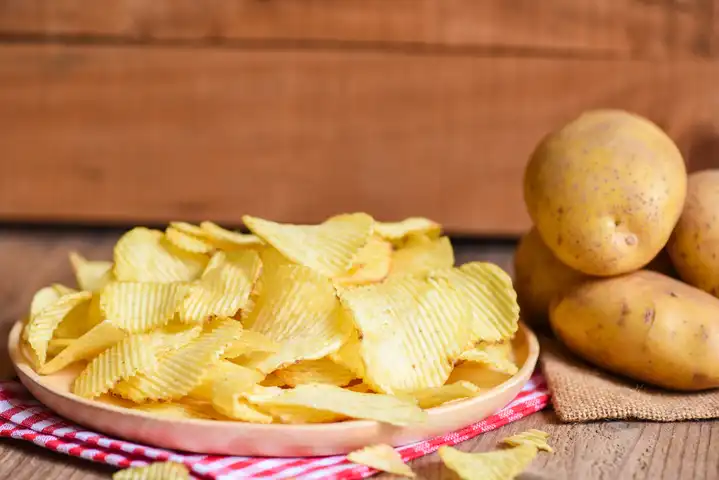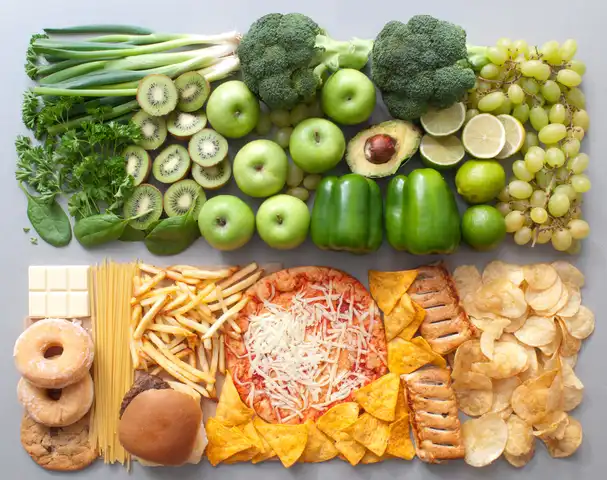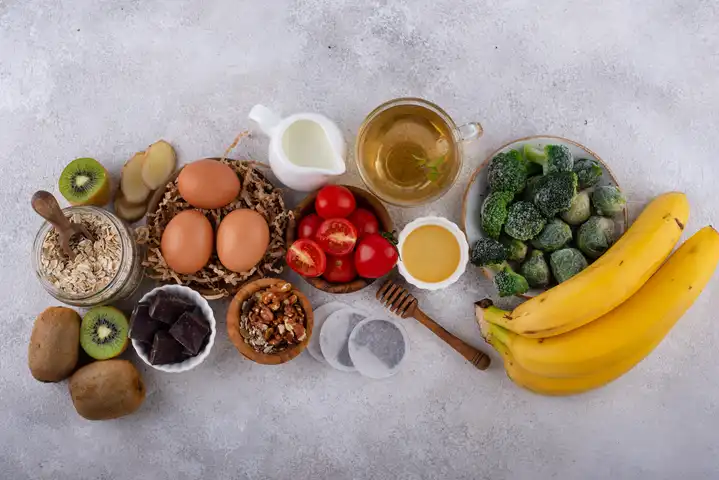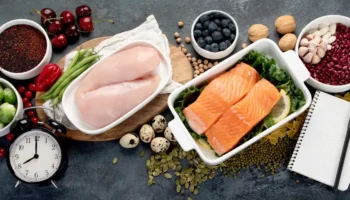As we journey through life beyond 35, our health needs evolve in powerful and surprising ways. Many women focus on exercise and skincare, but one hidden enemy often flies under the radar: unhealthy convenience foods. These convenient yet sneaky foods can deeply affect hormones, weight, mood, and energy levels — just when we need to protect them most.
In this guide, we reveal the shocking truth about unhealthy convenience foods — and how small, smart choices can radically upgrade your health and vitality after 35.

What Exactly Are Processed Foods?
Unhealthy convenience foods refer to any food that has been changed from its natural state through methods like freezing, canning, baking, drying, or adding ingredients like sugar, salt, preservatives, or artificial flavors.
There are different levels of food processing:
- Minimally processed (like bagged salads or frozen vegetables)
- Moderately processed (like cheese, bread, or yogurt)
- Heavily processed or ultra-processed foods (like soft drinks, instant noodles, packaged snacks, and frozen pizzas)
While not all unhealthy convenience foods are harmful, ultra-processed varieties pose the greatest risks — especially for women 35 and older, who face unique hormonal, metabolic, and cardiovascular changes.
Why Unhealthy Convenience Foods Are Especially Harmful for Women 35+
1. Processed Foods and Hormonal Imbalances
1. Unhealthy Convenience Foods and Hormonal Imbalances
This inflammation may also contribute to common issues like cellulite formation. If you’re curious about the connection, check out Understanding Cellulite: What Is It and How to Treat It.
2. Unhealthy Convenience Foods and Weight Gain After 35
Many women notice that weight management becomes harder with age. That’s because:
- Muscle mass naturally decreases after 30.
- Metabolism slows down.
- Processed foods are designed to be hyper-palatable, encouraging overeating without satisfying true hunger.
This struggle with weight loss is even more challenging during pre-menopause. Learn more in The Struggle of Weight Loss in Premenopause: What You Need to Know.
A study published in Cell Metabolism showed that people eating ultra-processed foods consumed 500 more calories per day compared to those eating whole foods — even when both groups felt equally full.
3. Unhealthy Convenience Foods and Increased Risk of Disease
Women over 35 are at greater risk for:
- Heart disease
- Type 2 diabetes
- Certain cancers
Consistently eating processed foods loaded with trans fats, sodium, and sugars significantly raises these risks. Inflammation triggered by processed foods can also accelerate aging and worsen joint issues, which often emerge in our late 30s and 40s.
Bloating, for example, is a common early sign of gut inflammation during pre-menopause. If you often experience this, read Bloated Tummy During Pre-Menopause 40? The Science, Causes and Easy Solutions to Feel Better.

The Research Behind Unhealthy Convenience Foods and Health
The link between processed foods and negative health outcomes is backed by extensive scientific research. Numerous studies have shown that diets high in ultra-processed foods can significantly increase the risk of chronic illnesses — particularly in adults over 35.
A groundbreaking study published in The BMJ (British Medical Journal) followed over 100,000 participants and found that those who consumed the highest amounts of ultra-processed foods had a higher risk of cardiovascular disease, type 2 diabetes, and even cancer compared to those who ate fewer processed foods.
Another study from Harvard T.H. Chan School of Public Health highlights that unhealthy convenience food consumption is strongly associated with:
- Weight gain
- High blood pressure
- Increased cholesterol
- Higher risk of heart disease
You can read more about this important research here on Harvard’s website.

How to Spot Processed Foods at the Grocery Store
| Signs of Processed Foods | Examples |
| Long ingredient lists with hard-to-pronounce words | Packaged snacks, frozen dinners |
| High amounts of added sugar | Yogurt cups, granola bars |
| Sodium levels over 20% daily value per serving | Canned soups, frozen meals |
| Artificial colors or flavors | Candy, soft drinks |
Pro Tip:
If your grandmother wouldn’t recognize the ingredients, it’s probably a heavily processed food!
Healthier Eating After 35: Smart Swaps for Processed Foods
Switching away from processed foods doesn’t mean spending hours in the kitchen. Simple swaps can make a huge difference:
| Processed Food | Healthy Swap |
| Breakfast cereal | Overnight oats with berries |
| Soda | Sparkling water with lemon |
| Candy bars | Dark chocolate (70%+ cocoa) |
| White bread | Sprouted whole-grain bread |
| Packaged salad dressings | Homemade vinaigrette (olive oil + lemon) |
Need meal ideas to help you transition easily? Check out this 7-Day Healthy Meal Plan for Women 40+.
7 Tips to Reduce Processed Foods Without Feeling Overwhelmed
1. Prioritize Whole Foods
Base your meals around foods that don’t have an ingredient list: fruits, vegetables, whole grains, lean proteins, nuts, and seeds.
2. Meal Prep on Sundays
Spend 1–2 hours prepping basics like quinoa, grilled chicken, roasted veggies, and hard-boiled eggs to save time during busy weekdays.
3. Shop the Perimeter
Stick to the outer edges of the grocery store — where fresh produce, dairy, meat, and bakery sections usually are.
4. Read Every Label
Look for hidden sugars (like corn syrup, cane juice, dextrose) and artificial ingredients.
5. Don’t Aim for Perfection
Allow yourself treats in moderation. It’s about building sustainable habits, not strict diets.
6. Cook Simple Meals
Focus on easy, delicious meals with 5 ingredients or fewer. Complexity leads to burnout.
7. Listen to Your Body
Notice how you feel after eating certain foods. Increased bloating, fatigue, or cravings are signs to clean up your diet further.
Final Thoughts: Why Reducing Processed Foods is the Best Gift You Can Give Yourself
Life after 35 is not about deprivation — it’s about empowerment.
By reducing processed foods, you nourish your hormones, protect your heart, support a healthy weight, and dramatically boost your energy levels.
It’s not about being perfect — it’s about making more intentional, powerful choices every day. Your body, your mind, and your future self will thank you.
Frequently Asked Questions (FAQ) About Processed Foods for Women 35+
1. What are processed foods?
Processed foods are any foods that have been altered from their original form, either through methods like canning, freezing, drying, or adding preservatives, sweeteners, and artificial ingredients. These can range from minimally processed foods, like bagged salads, to highly processed foods, such as packaged snacks, frozen dinners, and sodas.
2. Are all processed foods unhealthy?
Not all processed foods are unhealthy. Some processed foods, such as frozen vegetables or canned beans, can still provide essential nutrients. The most concerning are ultra-processed foods which contain high levels of added sugars, unhealthy fats, and artificial additives. These should be limited, especially for women over 35, as they may impact hormone balance and metabolism.
3. Why are processed foods particularly harmful for women over 35?
As women age, particularly around 35+, the body undergoes hormonal shifts that can affect metabolism, skin, and overall health. Processed foods can exacerbate hormonal imbalances, increase inflammation, and contribute to weight gain and higher risk for diseases like heart disease and diabetes.
4. How can processed foods impact my weight?
Processed foods are often high in sugars and fats, which can trigger overeating and cravings. They lack the fiber and nutrients needed to keep you feeling full, leading to weight gain over time. This is especially important for women in their late 30s and 40s, when metabolism slows and maintaining a healthy weight becomes more challenging.
5. What are some healthy alternatives to processed foods?
You can replace processed foods with whole, fresh options like:
- Fresh fruits and vegetables
- Whole grains (like quinoa and brown rice)
- Lean proteins (such as chicken, fish, and tofu)
- Homemade snacks (like roasted nuts or smoothies)
6. Can processed foods cause hormonal imbalances?
Yes, processed foods can disrupt hormone balance, especially in women over 35. Foods high in refined sugars, unhealthy fats, and additives can cause insulin spikes, inflammation, and contribute to estrogen imbalances. These factors may lead to symptoms such as mood swings, hot flashes, and weight gain during pre-menopause and menopause.
7. How can I reduce processed foods in my diet?
Start by making small changes:
- Choose whole foods whenever possible.
- Limit sugary drinks and snacks.
- Cook simple meals at home using fresh ingredients.
- Avoid foods with long ingredient lists or unfamiliar additives.
- Meal prep for the week to have healthy options readily available.
8. Are there any specific processed foods I should avoid?
Women over 35 should avoid highly processed foods such as:
- Sugary snacks and desserts (like candy, cookies, and cakes)
- Fast food and takeout
- Packaged snacks (chips, crackers, and processed meats)
- Soda and sugary beverages
- Frozen meals and pre-packaged deli meats
9. What are some benefits of cutting back on processed foods?
Cutting back on processed foods can lead to:
- Better hormone balance
- More energy and improved mood
- Healthier skin and weight management
- Reduced risk of chronic diseases like heart disease, diabetes, and cancer
- Improved digestion and gut health







